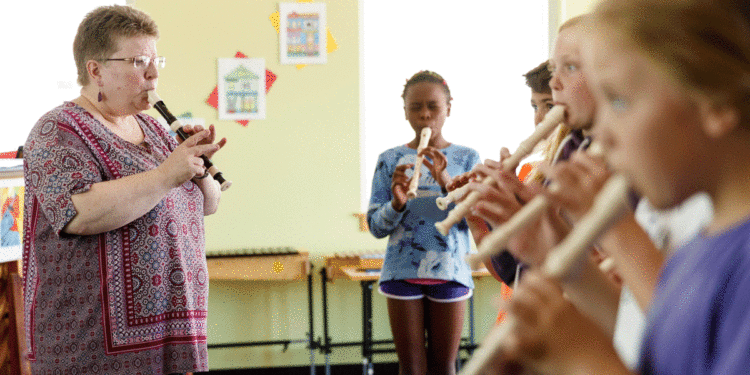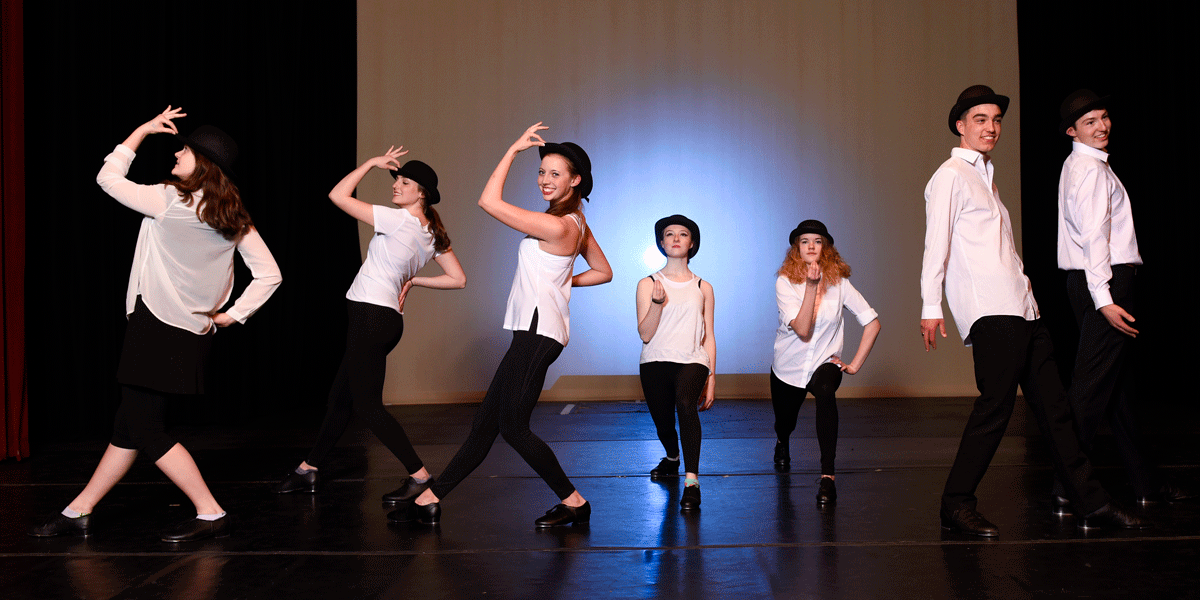As I walked into the Dance Studio for the pre-trimester Conservatory intensive, I was most excited to see my returning company dancers and to meet my five new Freshmen. The first 20 minutes is always the best, as shyness gives way to conversation and a lot of laughing, and this newly formed company tentatively begins to seek to know one another and share the experiences of their summer studies. They are refreshed and eager to tell what made a difference to them, and so this return to the studio is a graceful one, because it is rich beyond enhanced skill sets, with fresh perspectives, mind-awakening experiences, and a new way of seeing and practicing the art of dance that only happens when you branch out to new artistic communities and place yourself among an unknown, but often very impressive, talent pool.
Many adults of our community, myself included, were able to participate in educational and artistic enrichment with the support of Colorado Academy’s professional development program. Not unlike the students, I had glowing teachers in my office on the first day back, enthusiastically telling me in detail about where they went, what they did, and how they felt they were enlightened, and in some cases, changed as educators.
‘Ecstatic over summer work’
Andrew Friedrich, CA instrumental teacher and leader of guitar ensembles, felt it was a privilege for him to attend the Austin Classical Guitar Society training in St. Louis. He told me that among the core takeaways was a simple concept for teaching that he says he has taken to heart—Start from scratch, every day. Friedrich describes his work with a student:
“In a recent session, I had a student warm up with a scale. He started by playing fast, sure of himself, relaxed and confident. I said, ‘Let’s slow that down a bit and listen closer.’ He took it at a snail’s pace, so much so, it caught me off guard. My ears pricked up as he picked up [the scale] and as the length and resonance of each note he plucked produced a swirl of overtones in the body of his guitar.”
He spoke to me about beginning with one sound—one note on one string with one finger—asking each student “What does it sound like?” The educational value of Friedrich’s series of successions of notes with students, playing as softly as possible, then as loudly as they can, is as he states, “that no matter the level of our students, they start with a sound at the beginning of the lesson—simple, clear, and beautiful.”
Friedrich was not the only arts teacher ecstatic over summer work. Photography teacher and Portfolio director Jesse Myers enjoyed a week at Savannah College of Art and Design in Atlanta, at the Advanced Placement Institute, learning the ropes to implement a successful AP Art program at CA. “I was able to work with exceptional art educators from around the country on current practices, approaches, and assessments,” Myers says, and this will help us build a rich and vibrant AP course of study at CA.

‘Improvisation … comes naturally’
Also experiencing summer development study were Lower School music teachers Brenda Bartel and Nora Golden. Bartel took part in the Orff Schulwerk level 2 class at Metro State in July. She says it was an intense two weeks of expanding her understanding of elemental music and pedagogy and how to apply this content on a practical level. She also participated in the three-day Colorado Choral Directors Association conference, where she was inspired by nationally known composers and conductors and had the unique opportunity to read through newly published choral music which, no doubt, will find its way to our younger students’ voices and hearts.
Nora Golden felt fortunate to attend an August workshop by the acclaimed Orff Schulwerk teacher, Chris Judah-Lauder. She says that her three takeaways are “student choice, the power of process, and the need to have structured improvisation.” Using the rhyme, “Peter, Peter, Pumpkin Eater,” they explored using syllables to teach rhythm and notation, imagery in language to create movement, and the rhythm of the text to create melodic improvisations on the xylophones. Golden says, “I noticed that improvisation is stressful for adults, but comes naturally to our students.” She is looking forward to trying some of these new ideas in her classroom this fall.
All in all, our teachers were gracefully fortified to become students for a number of days and seek to learn what children learn naturally, and just maybe, after all, to learn as a child is one of the greatest achievements to which we can aspire. For me it was a few days in western Massachusetts, attending performances and lectures at my treasured Jacob’s Pillow Dance Festival, including the Eastman Company’s famous Fractus V. Tanglewood Music Festival is always a consummate artistic experience under the Berkshire stars, and a visit to the MassMoCA mecca in a torrential rainstorm, complete with Sol LeWitt’s A Wall Drawing Retrospective, was nothing if not transformative. As my soulful guitar teacher says, “There is magic in the simplicity of a note;” so there is beauty in the connection of teachers and children as a wholesome community of learners. May we continue to celebrate and learn and grow together.
